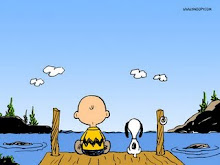Conspirator

- Brian
- I went out there in search of experience To taste and to touch and to feel as much As a man can before he repents.
Reading Ephesians 4.29 and 5.4, I'm kind of surprised that more Christians aren't pro-censorship. It would seem that being able to censor "immoral"expression would be a good thing. But, it's been my experience that even if it is used for vulgarity, Christians would rather have to deal with immoral freedom of expression than no freedom of expression. Maybe it is seen as one of those famous slippery slopes. Oh, if we allow censorship of foul and obscene expression, they'll end up censoring all expression! So what if they did?
Are we really that afraid of persecution? If we lost freedom of expression in the U.S. would we lose our faith as well? Are we really so pledged to the state that if the state banned freedom of expression we would stop practicing Christianity? How many Christians would stop being Christian if it were illegal?
I find this stance somewhat incongruous with the Christian stance against gay marriage. We want to prohibit gay marriage. We want the state to step in and clearly define marriage as between a man and a woman; we want to the state to prohibit marriage between homosexuals with little concern that maybe this is a slippery slope leading to the prohibition of all state-recognized marriages. In the case of marriage, we want censorship. There is no "Even though I don't like what some people do with marriage, it's better to have that freedom and have some misuse it than to not have it at all." Why is that?
Should we be in favor of stronger censorship from our government if it cleans up the language on television, or is that too much intrusion by the state? I don't see any way, from a legal perspective, that prohibiting gay marriage isn't discriminatory. I don't think you can prove that it isn't. Is that discrimination worth the risk if it clearly defines marriage as some would want it clearly defined?
In a similar arena, on Tuesday, an effort by Senate Democrats to repeal the military policy of "Don't Ask Don't Tell" was blocked. The last person to serve in the military in my family was my grandfather; I'm not all that familiar with military culture. I don't have a clear understanding of what is beneficial and what is harmful on a military base. (For example, guns and bombs seem harmful to me.) U.S. domestic policy, inside and outside the military, seems discriminatory to me. It is unfair, unconstitutional, to give one group of people privileges and freedoms and withhold these things from another group of people, but this is what is taking place.
I just find it strange
